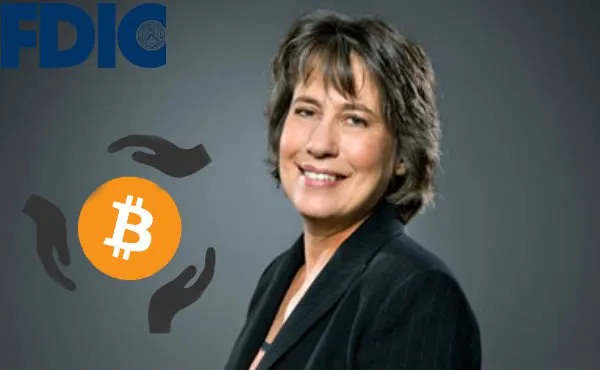
Bitcoin regulations should safeguard its investors – Sheila Bair
It’s been a momentous year for cryptocurrencies, especially Bitcoin. It’s dramatic highs and much-hyped lows seemed to have kept investors, and even those with a mild interest in the industry, on the edge of their seats.
It has also been thrust into the mainstream spotlight through the introduction of futures contracts, with Bitcoin ETFs likely to follow soon. The thing is, the closer that Bitcoin gets to its goal of global adoption, the more aggressive regulators have become in their bid to control the usage and trade of virtual currencies.
The former chairperson of the Federal Deposit Insurance Corporation (FDIC), which is an agency that manages stability and confidence in country’s financial sector, Sheila Bair, had this to say with regard to any regulations being made:
“Instead of making its own value judgments about Bitcoin, what government should do is first make sure our policies don’t feed the frenzy.”
In addition, Bair, who is currently working as an independent advisor to and director of many crypto- and blockchain-based initiatives, has said that Bitcoin should not be banned just because it has “no readily-apparent intrinsic worth”, the latter being a sentiment expressed by many experts in the financial industry.
However, other experts believe that traditional fiat currencies essentially have no intrinsic value either. In fact, Bair is of the opinion that the development of these currencies depended “more on psychology than physical attributes”. She explained:
“Since the beginning of commerce, humans have assigned value to things of no readily apparent intrinsic worth. Particularly in the case of mediums of exchange, aka currency. We assign value simply because those with whom we transact do so as well.”
Bitcoin, and all of the cryptocurrencies that followed suit, were created with transparency in mind. Their decentralized nature is a welcome reprieve from authority-controlled economies. To ensure this vision continues, Blair has implored that governments create a fair market, with no room for fraud and corruption.
The digital revolution continues to breed new regulations. Russia has recently submitted their draft law on crypto regulations, which if successful, could be implemented as soon as March next year. In a precursor perhaps of what’s to come, the legislation does not refer to crypto as any sort of currency.
In addition to pushing regulations, Russia as well as Israel and Dubai will launch their own state-run digital currencies. As Bair begs for investor protection in new regulations, these state-operated virtual currencies seem to safeguard the governments of these countries as they try to centralize and control the freedom that cryptocurrencies offer to the masses.
Author : Jack Dean
Jack has worked in the cryptocurrency industry for 5 years now as a reporter. His experience is predominately in banking, while he also has a keen interest in the forex world. His daily output is read by thousands of readers globally.